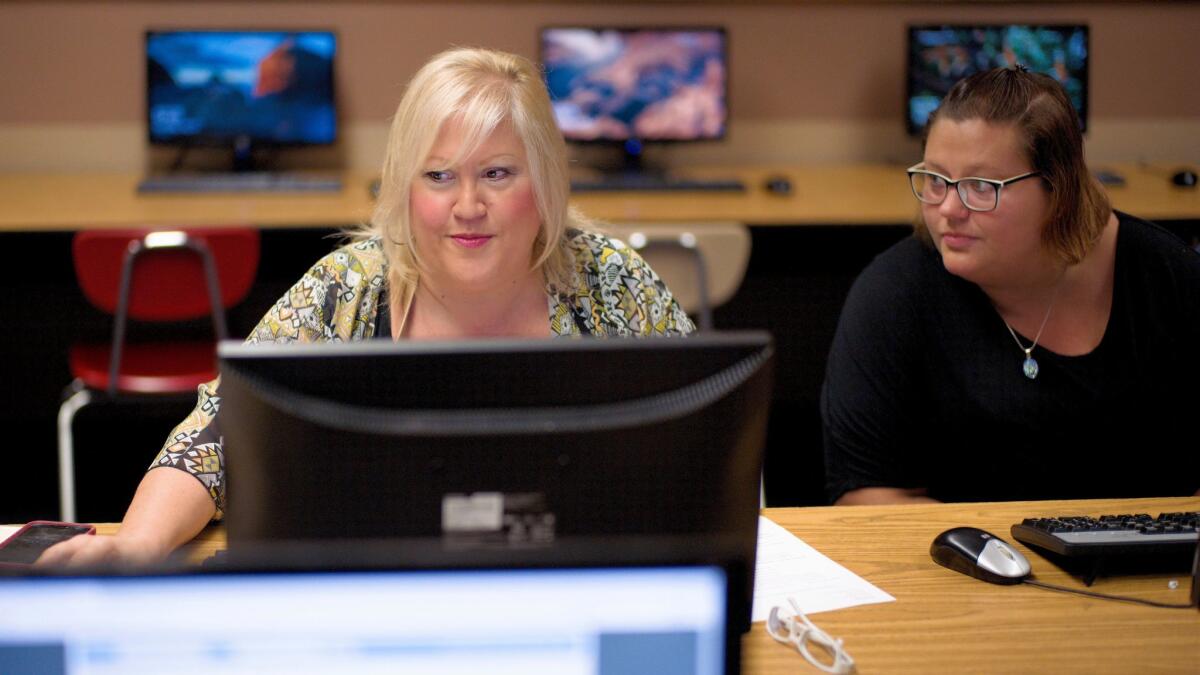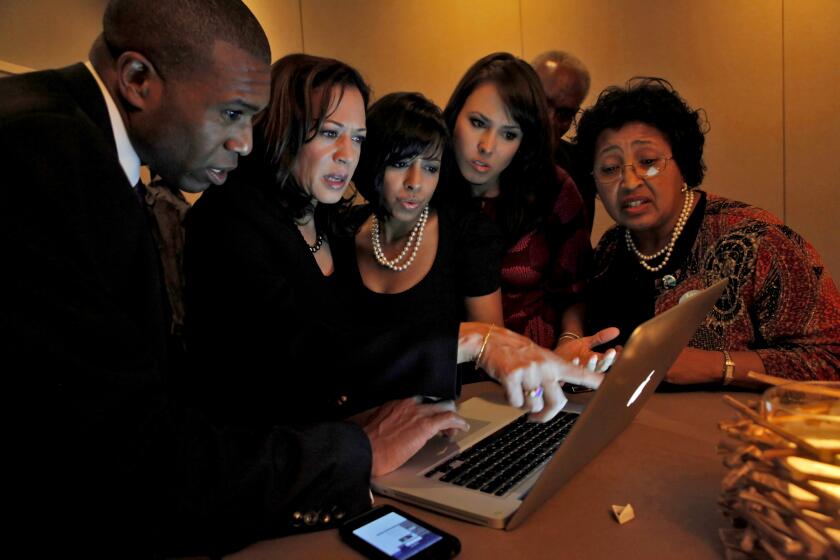Op-Ed: Are you too old to find work?

Terri had been laid off recently when her company decided to downsize, and she was having trouble finding a new job.
“It’s all about adaptability, ability to learn new things and thrive with change, and being able to work in this dynamic, constantly changing environment with lots of opportunity for growth,” she said.
Terms like “adaptability” tend to be code for “fresh out of school,” which Terri understood. She started dying her hair so that her LinkedIn profile photo would look younger.
Terri was one of many workers Ilana interviewed from 2013 to 2014 in the Bay Area. When Ilana attended workshops on job-hunting, they were filled with job seekers over 45. People explained that it had been relatively easy to find steady work until they hit their mid-40s or early 50s, at which point they experienced longer and longer stretches of unemployment between jobs.
Indeed, an AARP survey in 2012 found that 64% of workers said that they had experienced age discrimination or seen examples of age discrimination in the workplace. And one recent research study found that employers were less likely to call back older applicants — especially older women.
A focus on ineffable qualities, like ‘energy,’ gives employers a great deal of latitude to indulge unspoken prejudices and biases.
Such discrimination may stem in part from a dramatic change in how companies understand work. In the ’60s or ’70s, workers weren’t necessarily supposed to be flexible or adaptable or individual. They had skills, and employers paid them to use those skills.
Since the turn of the millennium, though, prospective employees have been encouraged to think of themselves as businesses; each person is supposed to be a CEO of me. Rather than offering a particular skill, employees are supposed to offer temporary and dynamic solutions for a business’ market-specific problems.
Hiring managers, in this environment, tend to look for certain fashionable qualities that are supposed to indicate an entrepreneurial personality, including “energy.” And on a conscious or unconscious level, many don’t believe that older workers fit that profile. Older workers may be considered unwilling to change, or unwilling to do certain kinds of work because of their experience — regardless of what the workers are actually like. Or hiring managers may assume that an older applicant will want too much money.
In theory, age shouldn’t be a detriment if employers are looking for flexibility and individuality. Older workers have more experience and perhaps more varied skill sets as well. Besides, as job tenures become shorter, age at start date should matter less than ever: If you’re hiring someone who will only be around for two to five years, it shouldn’t make a difference whether she’s 20 or 55. She won’t stick around for a lifetime (adding value or, conversely, drawing down benefits) in either case.
But a focus on ineffable qualities, like energy, gives employers a great deal of latitude to indulge unspoken prejudices and biases. When you hire not for skills, but for the right kind of personality, you often end up excluding certain groups — including older workers.
If businesses want to reduce those biases, they could rethink their approach to job descriptions: Fewer buzzwords, more specific responsibilities. Less “adaptability,” more — what will the new employee actually do at her desk all day? That goes both for public job ads and internal discussions about human resources requirements.
Job seekers have limited leverage and resources; a job seeker is not really a business, with a business’ resources for changing its product. The claim that everything is changing is often just a way for businesses to avoid confronting the ways in which biases and prejudices shape the workforce.
Ilana Gershon is a professor of anthropology at Indiana University and recently published “Down and Out in the New Economy: How People Find (or Don’t Find) Work Today.” Noah Berlatsky is the author most recently of “The Consequences of Feminism: Women Film Directors.”
Follow the Opinion section on Twitter @latimesopinion or Facebook
More to Read
A cure for the common opinion
Get thought-provoking perspectives with our weekly newsletter.
You may occasionally receive promotional content from the Los Angeles Times.






